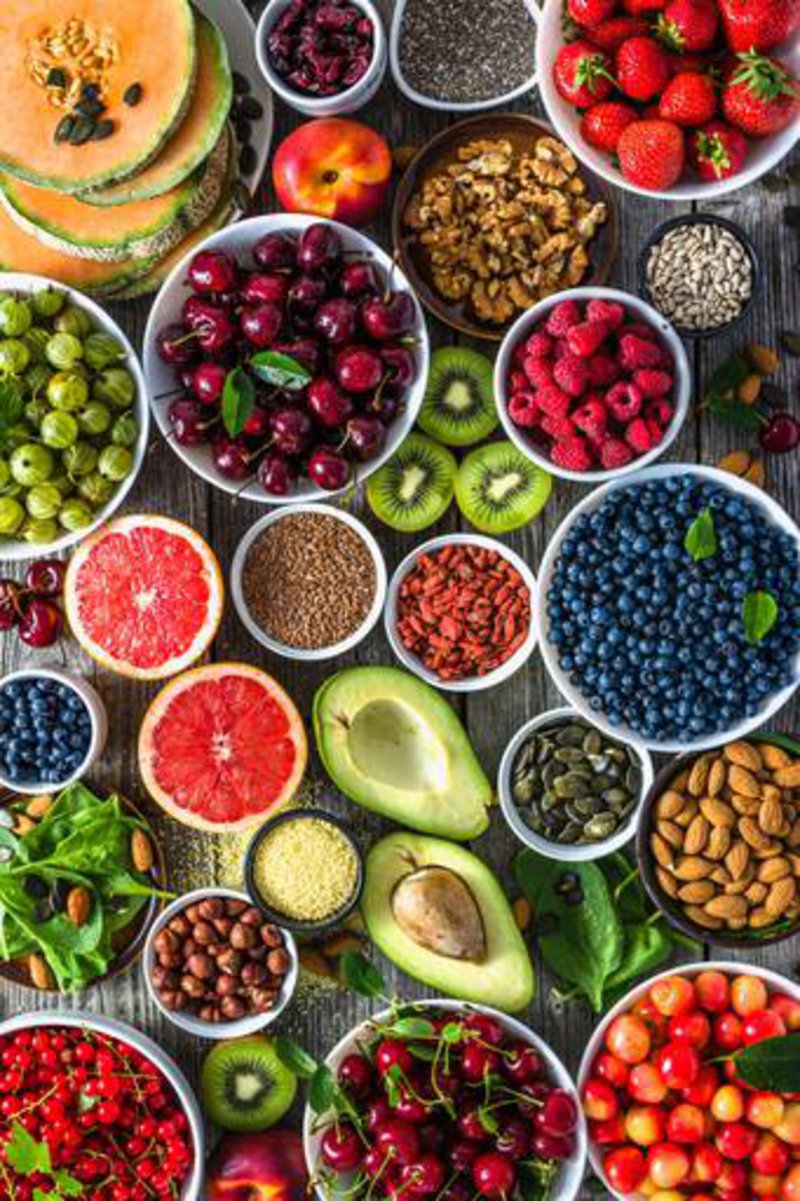Sustainable eating habits have become increasingly important as people seek ways to improve both their health and the environment.
Over the years, the focus on sustainability has grown from being just about environmental impact to also encompassing personal health. Sustainable eating emphasizes making food choices that are nutritious, locally sourced, and eco-friendly.

This shift has been driven by growing concerns about climate change, food waste, and the health impacts of highly processed diets. By choosing more plant-based, organic, and seasonal foods, individuals can significantly reduce their ecological footprint. These choices not only contribute to better environmental outcomes but also improve physical health by providing more balanced, nutrient-dense meals.
Over time, sustainable eating habits can lead to greater efficiency in both personal well-being and food resource management, creating a positive cycle for individuals and the planet.
Observation__: Sustainable eating isn’t just about saving the planet—it’s about taking care of your body, too. By choosing healthier, eco-friendly foods, you nourish yourself while contributing to a better environment. This balance helps create a lifestyle that’s both efficient and beneficial for long-term health.
Understanding Sustainable Eating
Sustainable eating refers to making food choices that are both good for the environment and your health. It involves selecting foods that are grown or raised in ways that minimize harm to the planet, such as choosing organic, locally sourced, and seasonal options.
Sustainable eating also focuses on reducing food waste, supporting ethical farming practices, and consuming more plant-based foods. By opting for these types of foods, we reduce our carbon footprint, support biodiversity, and improve soil health.
Additionally, sustainable eating emphasizes eating in moderation, avoiding highly processed or heavily packaged foods that contribute to environmental pollution. The goal is not just to eat with the environment in mind, but also to improve individual health by choosing nutrient-rich, whole foods. By adopting these habits, people can contribute to the global effort of creating a more sustainable food system while also benefiting from a healthier lifestyle.
Nutritional Benefits of Sustainability
Sustainable eating not only benefits the environment but also offers numerous nutritional advantages for individuals. When you choose foods that are locally sourced, organic, and seasonal, you’re opting for fresher and more nutrient-dense options.
These foods are often grown with fewer pesticides and chemical fertilizers, which means they retain higher levels of essential vitamins and minerals. Additionally, sustainable eating encourages a more balanced, plant-forward diet that is rich in whole foods like vegetables, fruits, and legumes, which have been linked to improved heart health, weight management, and overall well-being.
For instance, incorporating nutrient-packed seasonal produce, like kale or squash, can provide a variety of health benefits while supporting local farmers and reducing your carbon footprint.
By also focusing on food storage that helps preserve freshness, such as NSA Storage for long-term storage of bulk items, individuals can ensure that they have access to healthy foods without relying on excessive packaging or processed alternatives. Sustainable eating helps people reconnect with food, leading to healthier habits, and by consuming foods that are in season, you’re making choices that are not only better for your body but also for the planet.
Facts__: Studies show that organic foods often have higher levels of antioxidants, vitamins, and minerals compared to conventionally grown counterparts. Eating a diet rich in whole, seasonal foods can reduce the risk of chronic diseases, such as cardiovascular issues and obesity.
Reducing Food Waste
One of the most impactful ways to embrace sustainable eating is by reducing food waste. Wasting food not only depletes resources but also contributes to unnecessary environmental damage. By being more mindful of portion sizes and properly storing food, we can significantly cut down on waste.
Some simple strategies for reducing food waste include:
-
Planning meals in advance to avoid over-purchasing
-
Using leftovers creatively to make new meals
-
Properly storing food to extend its shelf life
Reducing food waste helps conserve resources like water and energy used in food production, transportation, and packaging. Additionally, it can save money and ensure that the food we buy is consumed at its peak nutritional value.
By adopting these habits, individuals contribute to a more sustainable food system while making the most of the food they purchase. This simple change in mindset can lead to long-term benefits for both personal budgets and the environment.

Environmental Impact of Food Choices
The environmental impact of food choices is often overlooked, yet it plays a significant role in the overall sustainability of our planet. The production, transportation, and waste of food contribute to significant greenhouse gas emissions, deforestation, and soil degradation.
By choosing more plant-based foods and locally sourced products, individuals can greatly reduce their carbon footprint. Animal agriculture, for example, is responsible for a large portion of global greenhouse gas emissions, with livestock farming contributing to methane emissions and land-use changes.
Additionally, processed and packaged foods require extensive resources for production and transportation, further increasing environmental strain. On the other hand, selecting seasonal and local produce minimizes transportation-related emissions and supports sustainable farming practices.
The impact of sustainable food choices extends beyond just reducing emissions; it helps preserve biodiversity and protects natural resources such as water and soil. A more sustainable food system is also more resilient, better able to withstand climate-related challenges.
By understanding the environmental consequences of food choices, people can make more informed decisions, ultimately contributing to a healthier planet and a more sustainable future.
Research__: According to a 2021 study by the Environmental Working Group, shifting towards a plant-based diet can reduce an individual’s carbon footprint by up to 50%. Additionally, sourcing food locally can decrease transportation emissions by up to 25%, further highlighting the importance of sustainable eating habits in reducing environmental impact.
Incorporating Sustainable Foods
When it comes to incorporating sustainable foods into your diet, there are various approaches depending on personal preferences, lifestyle, and environmental concerns. For example, choosing organic produce is a popular choice, as it avoids synthetic pesticides and fertilizers, promoting healthier soil and biodiversity.
However, organic foods tend to be more expensive and may not always be as widely available. On the other hand, opting for locally sourced foods can reduce your carbon footprint by cutting down on transportation emissions, but availability may be seasonal and limited depending on where you live. Another approach is to focus on plant-based eating, which significantly lowers environmental impact compared to meat-based diets.
While plant-based foods can be more sustainable, transitioning to this diet can be challenging for some, requiring careful planning to ensure balanced nutrition. Each strategy has its own advantages and drawbacks, but the common goal is to reduce environmental impact while promoting better health.
_Case study__: A small farm-to-table restaurant in California implemented a local sourcing strategy, focusing on seasonal produce. This decision not only supported local farmers but also reduced the restaurant’s carbon footprint. _
Despite the higher cost of local ingredients, the restaurant saw a 20% increase in customers due to the demand for sustainable, locally sourced meals, proving that sustainability can boost business while benefiting the environment.
Creating a Healthier Lifestyle
Sustainable eating habits contribute to a healthier lifestyle by promoting balanced nutrition and reducing exposure to harmful chemicals. By focusing on whole, plant-based foods and reducing reliance on processed items, individuals can improve their overall health and energy levels.
These eating habits not only benefit personal well-being but also support the environment by reducing waste and conserving resources. Embracing sustainable eating helps build long-term habits that promote vitality, longevity, and a deeper connection with food, leading to a more mindful and health-conscious lifestyle.



